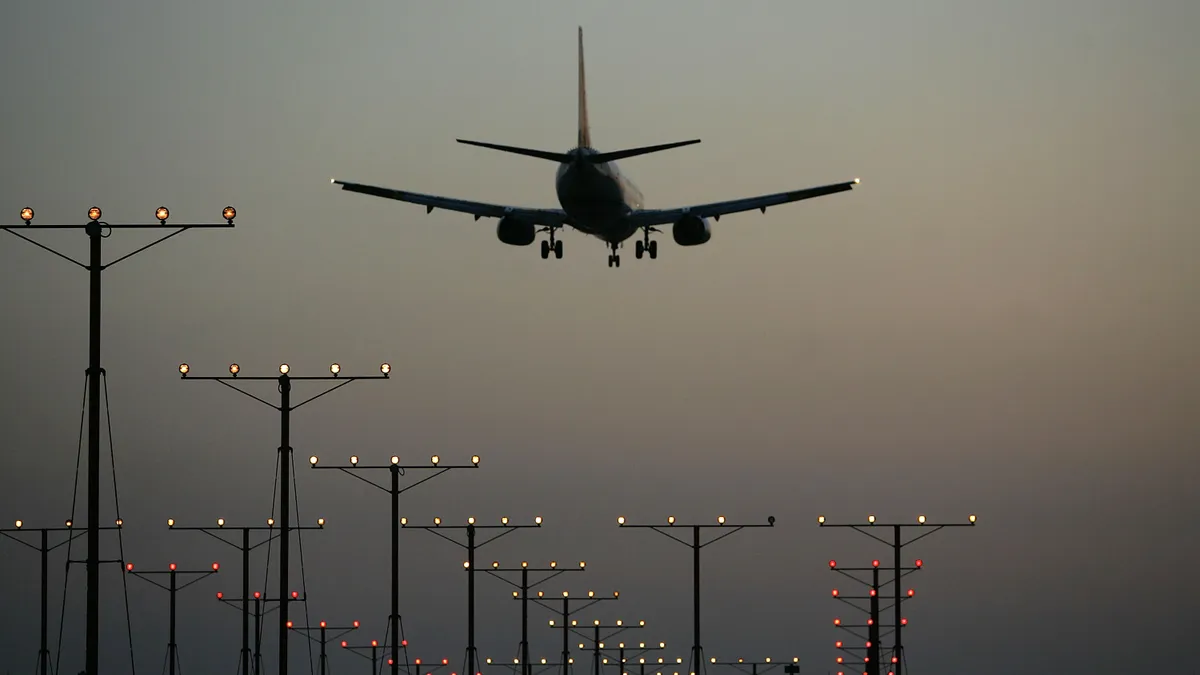Airlines were raked over the coals this winter as performance failures, technology woes and weather caused mayhem.
Southwest Airlines suffered an $800 million operational breakdown in December when crew scheduling systems and automation tools were unable to recover from Winter Storm Elliott during the holiday travel period.
Less than two weeks later, on Jan. 11, thousands of flights were grounded by a failure in the Federal Aviation Administration’s pilot notification system, NOTAM.
Finding time to modernize can be challenging, particularly for a round-the-clock business that needs to operate 365 days of the year. Companies with legacy systems must also integrate the old with the new while maintaining day-to-day operations.
“You can’t change the engines on an airplane when it's flying," Scott Kirby, CEO of United Airlines, said during a Jan. 18 earnings call.
For the FAA, the immediate focus was on process and ensuring tech changes aren't siloed.
Following the January incident, the FAA implemented new procedural and governance rules, the FAA’s acting administrator Billy Nolan said in a letter to Congressman Sam Graves, chair of the House Transportation and Infrastructure Committee.
The Friday letter said the system failure was caused by a contractor unintentionally deleting files while synchronizing two databases — the 30-year-old legacy U.S. NOTAM System and the newer Federal NOTAM System. Modernization of NOTAM systems began in 2019, Nolan said, and will be completed in 2030.
United, Southwest and three of the other largest domestic carriers responded to the recent technology concerns in the airline sector with assurances that they have and will continue to prioritize modernization and investing in IT. Here's what the airlines said about tech, during January quarterly earnings calls.
Delta Airlines
“We've invested in the customer experience at every stage of the travel journey, from the continued refresh of our fleet with next-generation far more fuel-efficient aircraft, to generational airport rebuilds and technology investments that are providing our employees better tools and our customers a more seamless experience,” Ed Bastian, CEO of Delta, said during a Jan. 13 earnings call.
United Airlines
“We flew a lot less last year than we’d have liked to fly, but we did it intentionally, because it gave us the breathing room to make even further investments in our technology and infrastructure,” Kirby said during United Airlines’ earnings call.
American Airlines
“We're doubling down on our efforts to run a reliable operation in 2023, including investing in our team, our fleet and technology to support our operations,” Robert Isom, American Airlines CEO, said during a Thursday earnings call.
Southwest Airlines
“We've been investing up to $1 billion per year on technology,” Jordan said during Southwest Airlines’ earnings call. “And we have implemented numerous large-scale technology and business projects over the past five years.”
JetBlue
“We've been on a multiyear journey around modernizing the systems that we had in our operations center,” Joanna Geraghty, president and chief operating officer at JetBlue, said during a Thursday earnings call.













